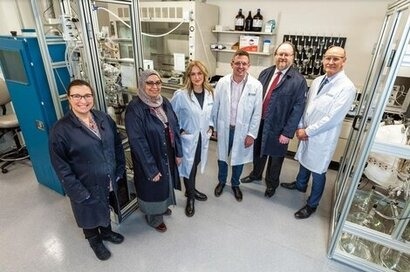
The new project is funded by Agriculture and Agri-Food Canada under the Agricultural Clean Technology (ACT) Programme, Research and Innovation stream.
Greenfield, in close collaboration with the University of Alberta’s Faculty of Engineering, is leading the development of a new clean technology that will convert agricultural waste into renewable diesel fuel. Promoting a circular agriculture economy, this technology has the potential of reducing the overall greenhouse gas emissions in the agricultural and transportation sectors by up to 90 percent when compared to fossil-based diesel fuel.
“Climate change solutions not only help the environment but can also improve the economy and support producers – and projects like this are a great example” said Francis Drouin, Parliamentary Secretary to the Minister of Agriculture and Agri-Food, on behalf of the Honourable Marie-Claude Bibeau. “This new technology will convert agricultural waste to renewable fuel, add value for producers and boost the energy industry, all while reducing greenhouse gas emissions.”
Additional benefits of Greenfield’s technology include being feedstock agnostic and utilising a spoke-and-hub approach to the collection of feedstocks, production of biocrude, and the refining of biocrude into renewable diesel.
Three key contributors that supported Greenfield’s funding submission process and helped make this project possible were the Canadian Federation of Agriculture, the Ontario Federation of Agriculture, and the Grain Farmers of Ontario. The collaboration of all parties involved will contribute to the successful commercialisation of this technology which will produce a sustainable liquid fuel, improve waste management and reduce greenhouse gas emissions.
For additional information:

